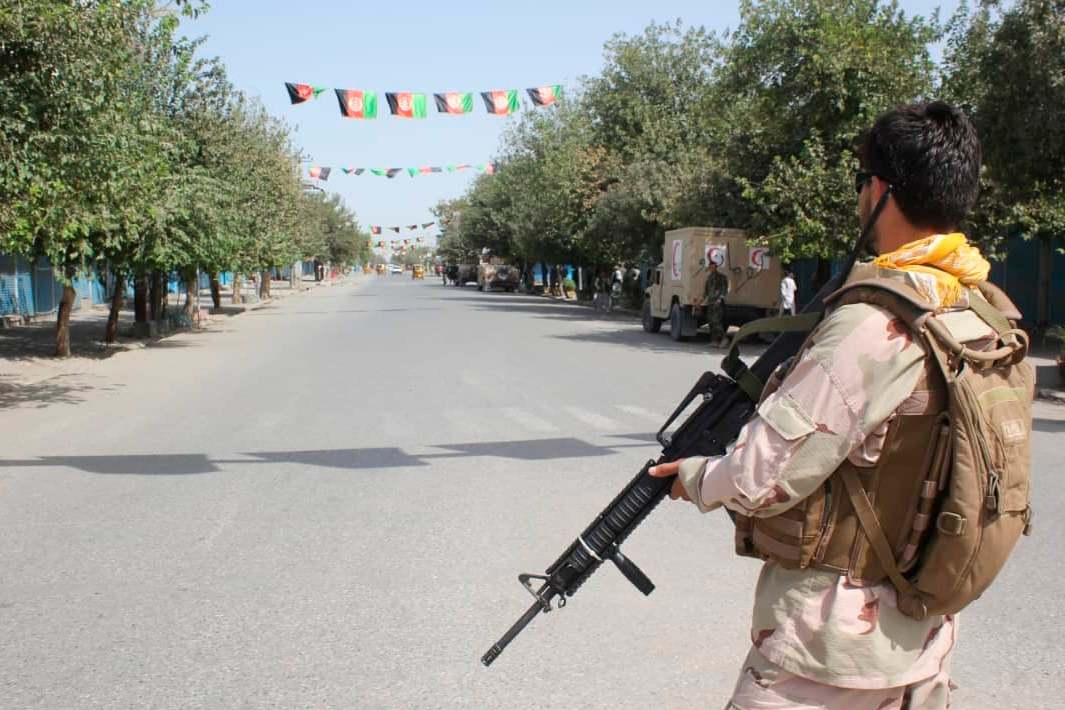Taliban take patients hostage at hospital during ‘massive attack’ on Afghanistan city Kunduz
Attack north of Kabul amid ongoing negotiations with US to bring end to 18 years of war

Your support helps us to tell the story
From reproductive rights to climate change to Big Tech, The Independent is on the ground when the story is developing. Whether it's investigating the financials of Elon Musk's pro-Trump PAC or producing our latest documentary, 'The A Word', which shines a light on the American women fighting for reproductive rights, we know how important it is to parse out the facts from the messaging.
At such a critical moment in US history, we need reporters on the ground. Your donation allows us to keep sending journalists to speak to both sides of the story.
The Independent is trusted by Americans across the entire political spectrum. And unlike many other quality news outlets, we choose not to lock Americans out of our reporting and analysis with paywalls. We believe quality journalism should be available to everyone, paid for by those who can afford it.
Your support makes all the difference.The Taliban have launched a new large scale attack on one of Afghanistan's main cities, Kunduz, and taken hospital patients as hostages, the government said on Saturday, even as the insurgent group continued negotiations with the United States on ending America's longest war.
The militants, who have demanded that all foreign forces leave Afghanistan, now control or hold sway over roughly half of the country and are at their strongest since their 2001 defeat by a US-led invasion.
Presidential spokesman Sediq Seddiqi said Afghan security forces were repelling the attack in parts of the city, a strategic crossroads with easy access to much of northern Afghanistan as well as the capital, Kabul, about 200 miles (335km) away.
The Taliban were in control of the Kunduz hospital and both sides in the fighting had casualties, provincial council member Ghulam Rabani Rabani said. He could not give an exact number.
The militants had taken hospital patients as hostages, defence ministry spokesman Rohullah Ahmadzai told reporters in Kabul. He did not say how many.
The Taliban have continued bloody assaults on civilians and security forces even as their leaders meet with a US peace envoy in Qatar to negotiate an end to nearly 18 years of war.
Talks continued on Saturday, the Taliban spokesman said. Both sides in recent days have signalled they are close to a deal.
Some 20,000 US and NATO forces remain in Afghanistan after formally ending their combat role in 2014.
"We could very easily attack but we don't want civilian casualties," he said. Hospital officials could not immediately be reached.
The spokesman asserted that 26 Taliban fighters had been killed in an air strike but did not mention any casualties among civilians or Afghan security forces.
The Taliban launched the "massive attack" from several different points around the city overnight, said Sayed Sarwar Hussaini, spokesman for the provincial police chief.
"I can confirm that intense gun battles are going on around the city, but the Taliban have not been able to overrun any security checkpoint," he said, adding reinforcements had arrived and Afghan air forces were supporting ground forces.
Taliban spokesman Zabihullah Mujahid in a Twitter post called the attack "large-scale."
They continue to train and support Afghan forces fighting the Taliban and a local affiliate of the Islamic State group.
The United States for its part seeks Taliban guarantees that Afghanistan will no longer be a launching pad for terror attacks such as the September 11, 2001, attack on the US by Al-Qaeda. The Taliban government had harboured Al-Qaeda leader Osama bin Laden.
Many Afghans worry that an abrupt departure of foreign troops will leave Afghan forces vulnerable and further embolden the Taliban, who already portray a US withdrawal as their victory.
The Taliban seized Kunduz, at the heart of a major agricultural region near Tajikistan, for around two weeks in 2015 before withdrawing in the face of a NATO-backed Afghan offensive.
The insurgents pushed into the city centre a year later, briefly raising their flag before gradually being driven out again.
AP
Join our commenting forum
Join thought-provoking conversations, follow other Independent readers and see their replies
Comments